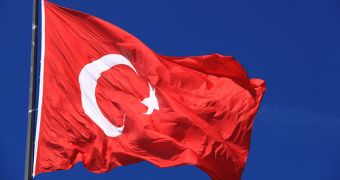In its long-lasting battle against YouTube, Turkey officials banned a new set of Google-owned IPs in an attempt to stop Turkish Internet users from accessing the dreaded video platform. According to the online edition of the Turkish newspaper Hürriyet, Turkey’s Telecommunications Communication Presidency (TIB) came out Friday June 4th and announced that it blocked access to some Google IP addresses due to legal reasons.
The news came after users started experiencing problems since the middle of the week with services like Google Translate, Google Analytics, Google Docs, Google Tools and Google Books.
To set things straight, nothing new happened between Google and Turkey to trigger such a harsh reaction from Ankara government. The situation between the Turkish officials and Mountain-View management hasn't changed since March 2007, when because of a defamatory YouTube video against the country's founding father, Mustafa Kemal Atatürk, the presidency decided through a court order to ban access to YouTube in their country.
As Hürriyet shows, aided by Turkish lawyer Mehmet Ali Köksal, the court order and the government's recent actions don't show an escalation or a conflictual position against Google, but more a technical mishap from the Ankara officials.
Due to the fact that Google owns its personal DNS from which it can change the IPs of its own services according to their own needs and various technical reasons, it's serving Google Search, YouTube, and its huge portfolio of services practically from a fixed range of Internet addresses.
When Turkey technicians tried to ban a new set of YouTube IPs, they again narrowed down the small area of Google IPs. But this time around, they managed to restrict access of other Google services which now may use former YouTube IPs, already banned across Turkey in the last two years.
So what did we learn from this? If you live in country A and hate country B, and would want to see citizens of country B have a miserable life, just shoot a video in which you are making fun of country B's government / history, put it on YouTube and voila. Country B's government will just go crazy and ban the entire Google network (or Facebook, or Wikipedia, or Flickr, or Twitter, etc, see example 1 or example 2).

 14 DAY TRIAL //
14 DAY TRIAL //